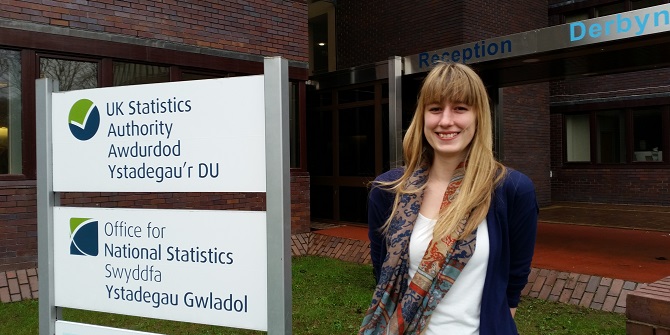Guest blog by LSE alum Michele Granastein, now working at Oxera:
When I started my MPA in Public and Economic Policy at the LSE in 2008, I didn’t really know what I wanted to do when I graduated. I knew I wanted to use the economic concepts and skills I acquired during my undergraduate and master’s degrees and work in a dynamic environment that combined aspects of Academia, the private and the public sectors.
After attending a Careers Fair at LSE, and speaking to Oxera, I learned that economic consultancy was a career that covered all of these elements and which would be a good fit for me. They also focused on microeconomics rather than macroeconomics, unlike many of the economic firms that I had previously come into contact with. I interviewed at Oxera for an internship, and returned after graduating from my master’s programme and have been working there ever since.
Economic consultancies help businesses, lawyers and government bodies across different sectors come up with solutions to the economic issues that they face. They also help influence and shape regulatory and government policy. While some firms specialise in particular areas, many firms, including Oxera, work across competition, finance, regulation and litigation issues around the world. For example, a retail firm may ask us to help assess the costs that a cartel in an input into their production process has caused as part of a court case. Or a regulator may ask us to assess the reasonable level of profit that a regulated firm should be able to earn. No two questions asked by firms are the same, which means that the job remains interesting and requires innovation in thinking.
The job requires a combination of quantitative skills to undertake analysis and qualitative skills to explain economic concepts in simple and clear terms verbally and in writing. So if you’re interested in a career in economic consultancy, it helps to demonstrate these abilities. Clients are also often asking us our thoughts on how different regulatory, economic or political developments will affect their businesses so it is important to stay up to date on relevant issues. For most economic consultancies there is also a requirement to have at least a Bachelor’s degree in Economics, though many of the people working at Oxera have master’s or PhD degrees in Economics as well.
Career Fairs are an excellent way to find out about different career opportunities and firms. Doing an internship is also a good way to get insight into a particular career and firm. From there if you decide that it’s a good fit, there is certainly career progression available if you show that you have the skills and the desire to do so.





